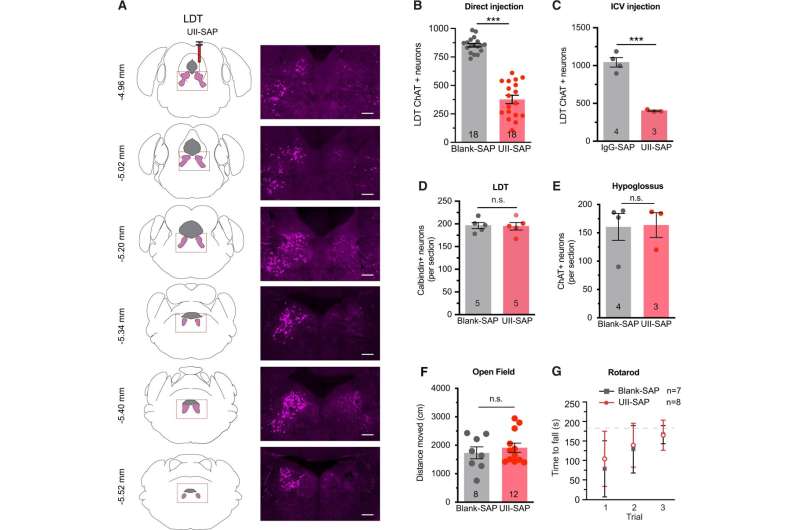
Researchers at The University of Queensland have discovered a link between obstructive sleep apnea and an increased risk of developing dementia.
Professor Elizabeth Coulson from UQ’s Queensland Brain Institute and School of Biomedical Sciences and her team found a causal relationship between a lack of oxygen to the brain during sleep and Alzheimer’s disease in mice.
“We found sleep deprivation alone in mice caused only mild cognitive impairment,” Professor Coulson said.
“But we developed a novel way to induce sleep-disrupted breathing and found the mice displayed exacerbated pathological features of Alzheimer’s disease.
“It demonstrated that hypoxia—when the brain is deprived of oxygen—caused the same selective degeneration of neurons that characteristically die in dementia.”
Professor Coulson said the next step would be to determine what levels of hypoxia result in brain degeneration in humans.
“It’s estimated around 50% of elderly people have obstructive sleep apnea, when their throat muscles intermittently collapse and block the airway during sleep causing their breathing to stop and start,” she said.
The current gold standard treatment is a CPAP (continuous positive airway pressure) machine, which keeps the airway open during sleep and allows oxygen to the brain.
“We couldn’t fit CPAP to mice, but we experimentally prevented the hypoxia and this stopped the cognitive impairment and neuron death, and also reduced the Alzheimer’s pathology,” Professor Coulson said.
“This suggests that CPAP treatment of obstructive sleep apnea has the potential to reduce dementia risk.”
Professor Coulson said the findings could change the way dementia clinicians diagnose and treat their patients.
“Thirty percent of people with obstructive sleep apnea being fitted for CPAP machines already display signs of dementia-like cognitive impairment,” she said.
“Unfortunately the hospital system isn’t referring those people to dementia clinics.
“Some dementia clinicians have reported their patient’s memory has improved after their sleep problems were identified and treated.”
Professor Coulson said not everyone with obstructive sleep apnea would get dementia.
“But we need to define the ‘at risk’ population,” she said.
“Early stage human trials are underway with sleep clinicians in Brisbane and Sydney to determine the correlation between hypoxia and sustained cognitive impairment, and whether CPAP can reduce dementia risk.
“I would strongly recommend anyone with obstructive sleep apnea use a CPAP machine to maintain cognitive function, as well as assist with other health issues.”
The study has been published in Nature Communications.
More information:
Lei Qian et al, Cholinergic basal forebrain degeneration due to sleep-disordered breathing exacerbates pathology in a mouse model of Alzheimer’s disease, Nature Communications (2022). DOI: 10.1038/s41467-022-33624-y
Journal information:
Nature Communications
Source: Read Full Article